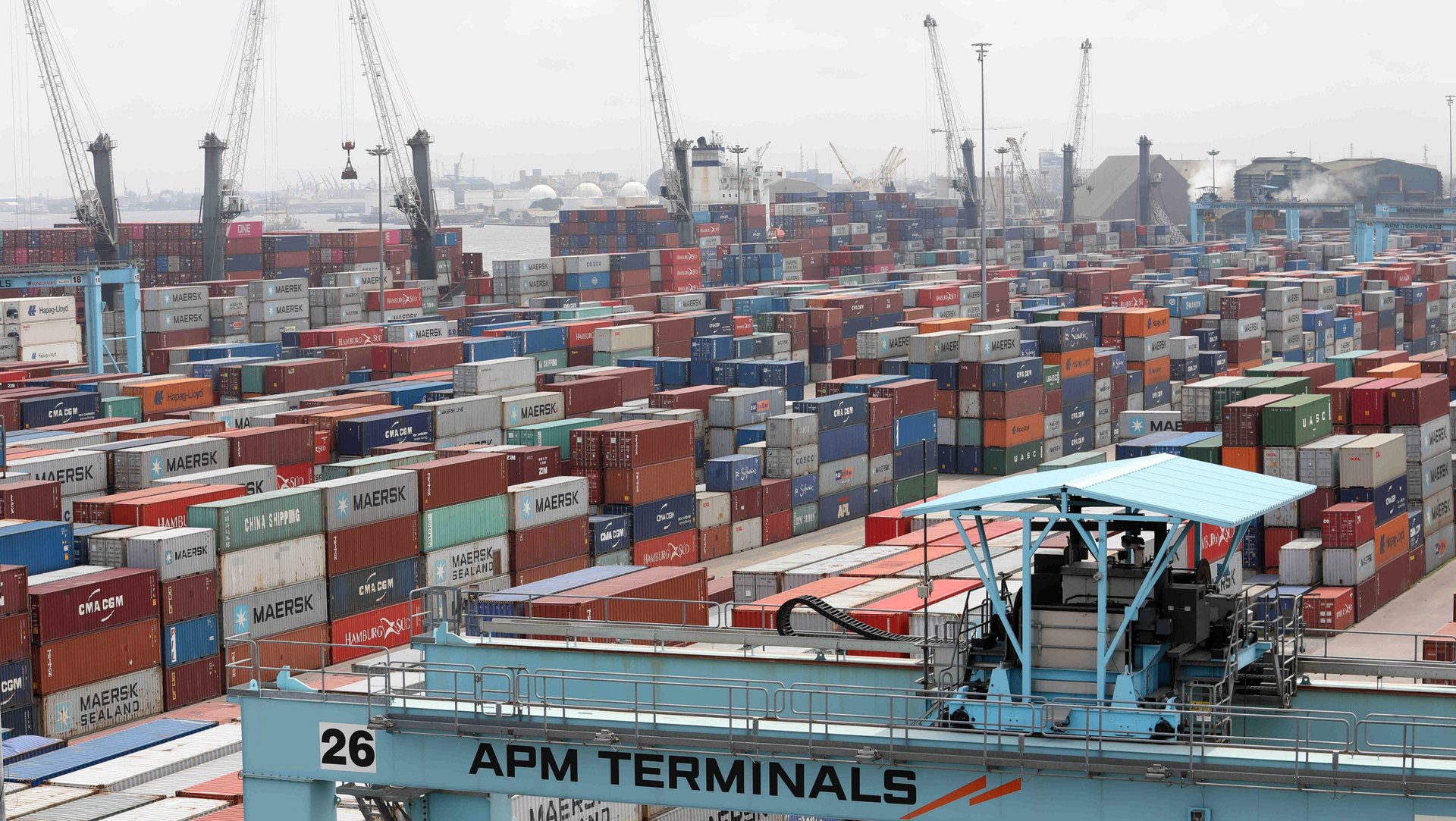Corruption and congestion at Nigeria’s biggest port are costing importers thousands of dollars
Nigeria’s economy is highly dependent on imports, despite the ambitious rhetoric and best efforts of successive governments.


Nigeria’s economy is highly dependent on imports, despite the ambitious rhetoric and best efforts of successive governments.
But imports carry a consistently high cost for businesses bringing in shipments to Africa’s most populous country. Thanks to decades of inefficiency, processes at Nigeria’s main port are hamstrung by excessive bureaucracy and corruption, driving up costs.
Research shared with Quartz by SBM Intel, a Lagos-based geopolitics and economics intelligence firm, details just how pricey imports into Nigeria are compared to other key African ports. For its analysis, SBM tracked shipments coming into ports in Nigeria, South Africa, and Ghana from the European Union zone over a three-month period last year.
Shipments into Nigeria’s Apapa port in Lagos incurred the highest shipping costs, terminal charges, and average local transport prices from the port to selected warehouses in the city. In total, costs associated with imports into Lagos were double what they were for Ghana’s Tema port, and South Africa’s Durban port.
In particular, local transport costs in Lagos are more than seven times higher than in Tema and Durban, largely thanks to perpetual congestion at the Apapa port. Poor access roads and long waiting times at the port’s entrance often cause backups of container-laden trucks stretching 10km (6 miles), resulting in traffic jams on the city’s major highways and bridges.
The congestion and inefficiency comes at a significant price for Nigeria’s economy. After implementing reforms at its port in Lome, Togo has seen container traffic rise more than three-fold since 2013. It now surpasses Lagos as the leading port by container traffic in West Africa.
The Nigerian government has attempted reforms at the Apapa port, including mandating 24-hour operations and attempting to clamp down on entrenched bribery, but a lack of enforcement has meant those measures have not fully taken hold.
The long-term effect is that import costs into Nigeria will likely remain expensive from anywhere in the world. While SBM Intel’s data only tracked imports from European Union countries, shipping costs from the US to Nigeria are similarly expensive. While Nigeria is closer to New York than South Africa is in terms of nautical miles, it costs nearly twice as much for someone to ship a package from New York to Lagos than to Cape Town.